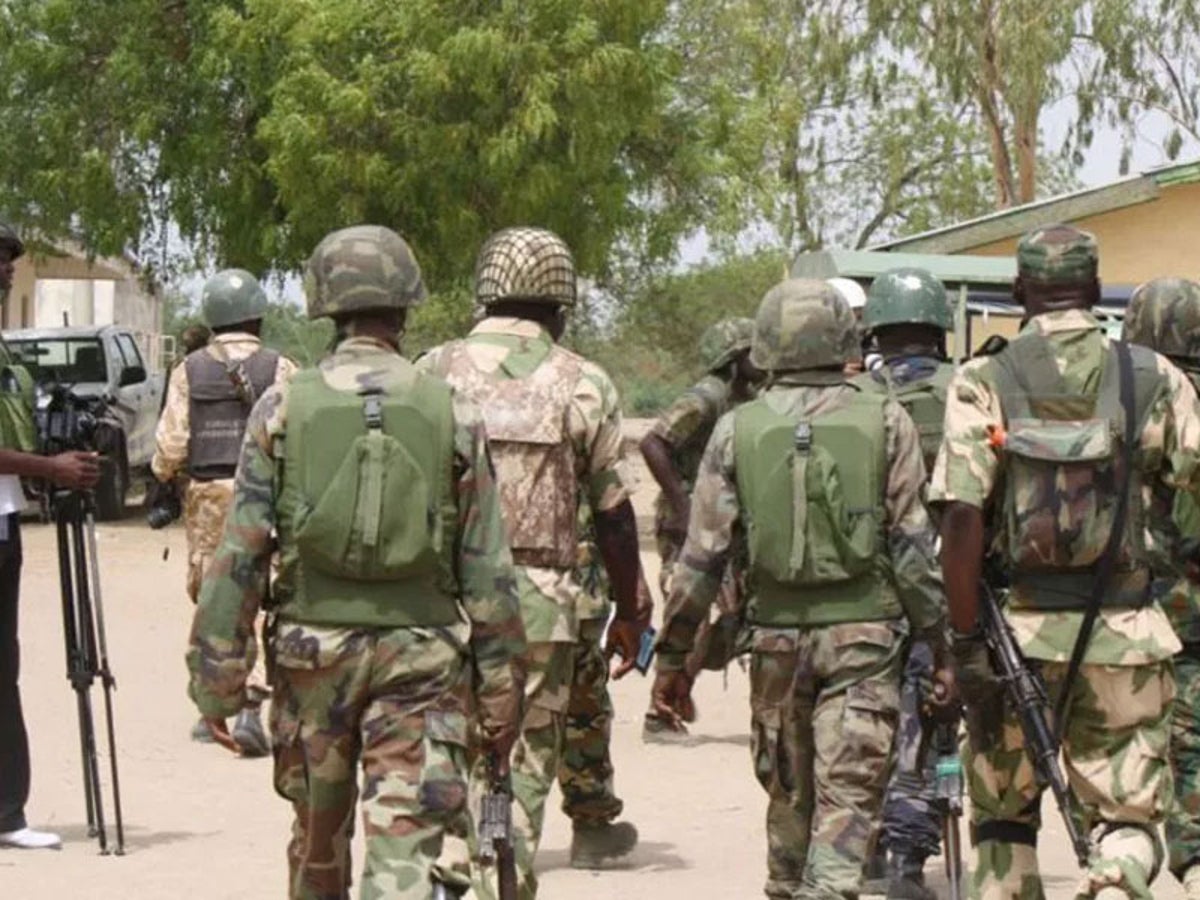A military spokesman has reportedly faulted the claim that the gains of counterinsurgency operations were now being eroded in Borno State.
This is a matter both the military and the people of Borno State are equally capable of ascertaining.
ISWAP kills 9 soldiers, 2 civilian JTF in Borno
Borno govt to return Baga IDPs home September 26
My emphasis here is on the response of the said military spokesman to a media report that 17 out of 27 local government areas in Borno State are under attack by the Boko Haram insurgents.
In a bid to solicit public understanding of the situation, the spokesman, among other things, said that unlike in the other North-East States of Yobe, Bauchi, Adamawa and Gombe, where substantial progress had been made in the military campaign against the insurgents, the terrain in Borno State was different.
According to him, among the serious factors hindering the campaign in Borno State was that the basic facilities that could assist in winning the war were absent.
He was quoted as saying that:
“There is no semblance of governance or civil authority in Borno State.
No cross-country roads, no interstate roads, no intra-local government roads.
Some terrains are not easily accessible by troops because there are no road networks.
Even some roads constructed by DFFRI many years ago have become dilapidated and not repaired.
It is only federal roads that are better.
How many local government roads do they have?
There is no road linking the state capital to some of these local governments and war fronts.” (The Nation, August16, 2020, p.5).
For the spokesman to have made such a powerful case for the need for road development network in Borno State is praiseworthy.
He has a point in stating that terrain is an important factor in warfare.
However, the handicap of road network in Borno and anywhere else would appear to have been overplayed.
As to the lack of effective administrative presence in some of the local government areas in the state, such a situation may be responsible for the Boko Haram insurgents seizing the opportunity to establish de facto local administration such as in the Sambisa forest where they have a hierarchy administration with identifiable Amir and his commanders mounting various checkpoints and communal and social activities somehow going on in several villages in the forest (Daily Trust, August 16, 2020, p. 36).
It is getting to nearly 9 years since the military campaign started.
The impression must not be created that it is only now that the military has realised that the terrain is an obstacle.
How does the terrain suit the insurgents better than the professional soldiers?
Wars have been fought and won even in medieval times when there was hardly any road of note.
European wars were fought and won before the Roman roads and the German autobahn.
Wars have been fought and won in jungles and deserts with hardly any recognisable road let alone a road network. Even in modern times we have had military campaigns in Congo, Vietnam, Afghanistan, Liberia, Iraq, Lebanon and Sudan.
Nigerian military participated creditably in many of these places.
And, here at home, the civil war and military campaigns in the Niger Delta were successfully undertaken.
Simply put, the road factor should not be stressed as it gives the impression that we may have to wait for the development of road network in Borno State before the military campaign would have its way over the insurgency.
This is unthinkable.
One narrative states that with a navigation campus and a four-wheel drive vehicle with auxiliary gear one could easily approach Baga town on the shores of the Lake Chad from Gubio.
Because most of the terrain in northern Borno is sandy and short of bush, one could easily find one’s way if one has these two vital logistics.
Indeed, one could easily surmise that these are what aid the movement of the insurgents in that part of the state.
There is another narrative by two women abducted by Boko Haram insurgents bearing AK47 rifles and wearing military camouflage.
The women were abducted from a farm near Tugunshe village in Konduga Local Government Area and taken to Sambisa forest on motorcycles.
On that deplorable road, it took the abductors and their captives two days to reach their destination in Sambisa (Daily Trust, August 16, 2020, p. 36).
This is indicative of the lack of sophistication in the nature of some of the operations of the insurgents.
Similar reports have been made of this kind of operation in the North-West.
These narratives indicate that the insurgents also face terrain-related challenges but have devised ways of surmounting these challenges to maintain their enclave and entrench themselves.
It is expected that the military should have the logistics to move in all terrains.
And since the development of roads in most parts of Borno State cannot be done without first dislodging the insurgents, the emphasis should shift from bemoaning the terrain to a re-evaluation of the military’s response to this protracted insurgency situation.
Although no one knows better than the military how this strategic reappraisal should be conducted or implemented, there appears to be an urgent need for it right now.
The fact that some traditional rulers who hitherto fled their domains had returned clearly demonstrates that once the military clears the insurgents from any enclave and security restored, civil authorities will return. Security is the key to that.
Certainly, there are several factors hampering or facilitating the military campaign which should be appreciated by all concerned.
However, in addressing the public, military spokesmen should always endeavour to adduce fairly convincing reasons.
To do otherwise would inevitably lead to the erosion of public sympathy and confidence.
Bukar Usman is a former federal permanent secretary

 Join Daily Trust WhatsApp Community For Quick Access To News and Happenings Around You.
Join Daily Trust WhatsApp Community For Quick Access To News and Happenings Around You.


